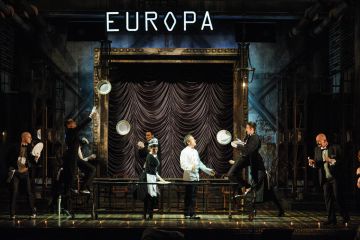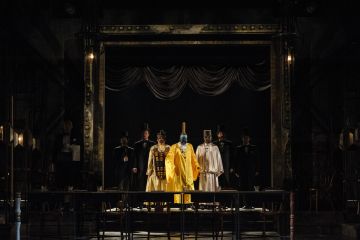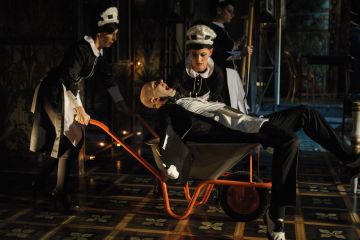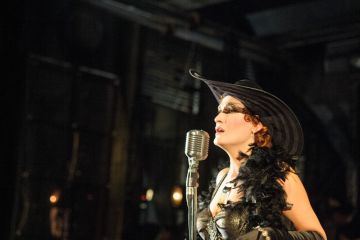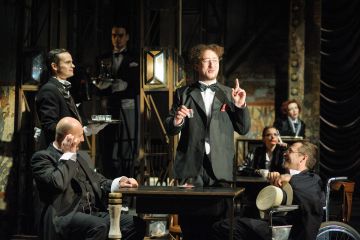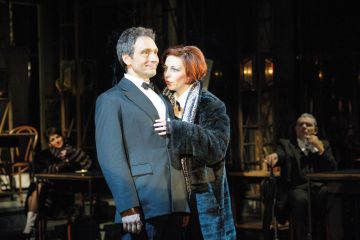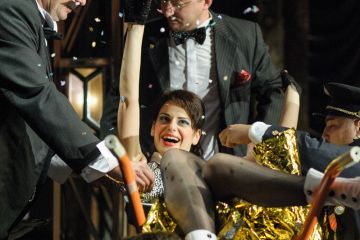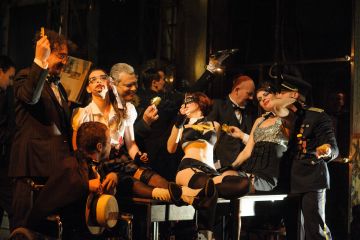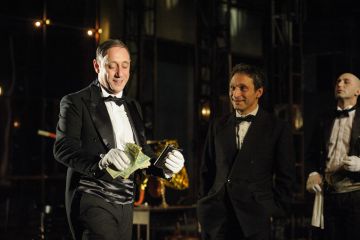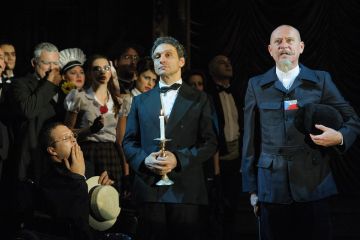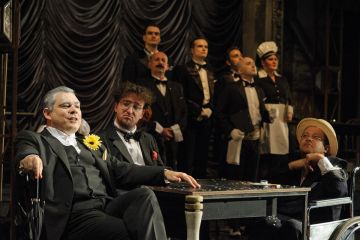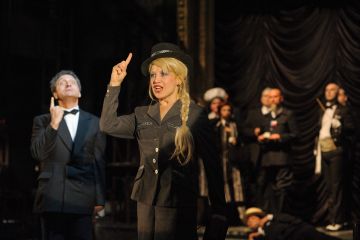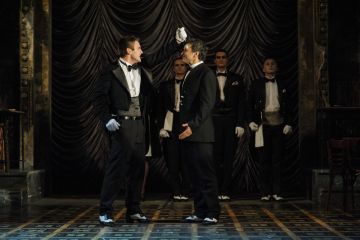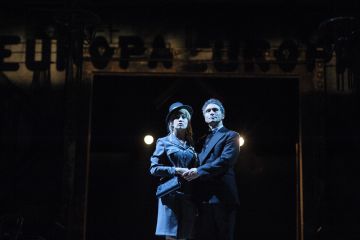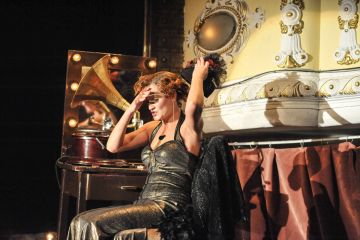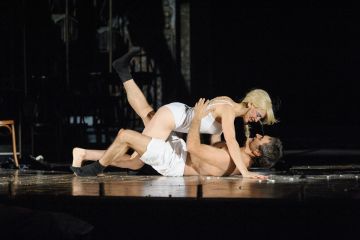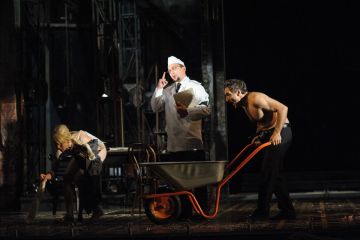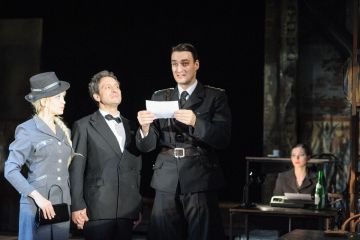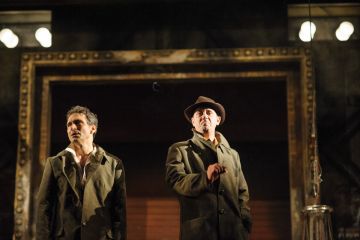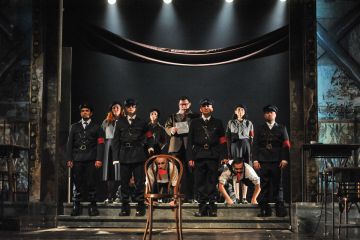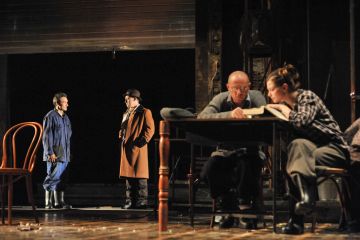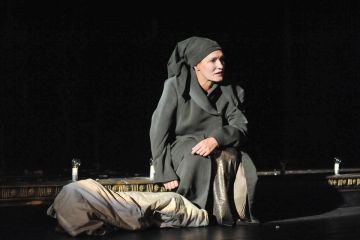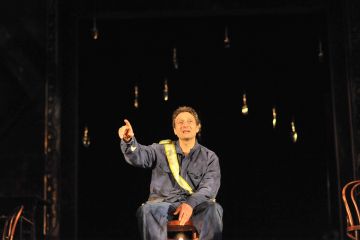Bohumil Hrabal
I Served the King of England
Adaptation by David Jarab, Hungarian translation: István Vörös
Main stage
Jan Dítě
Zsolt Bogdán
Líza Papanek, his wife
Enikő Györgyjakab , Anikó Pethő
Zdeněk, his friend
Áron Dimény
Jiřina Štěpničková, actress and singer
Emőke Kató
Mr. Skřivánek, waiter / Gestapo
Lóránd Váta
Emperor of Abyssinia / President of the Czech Republic / French literature teacher
József Bíró
Mr. Brandejs, hotel owner / Member of The People's Militia (LM)
Attila Orbán
Secretary of State / Mr. Šroubek, hotel owner / Man of Steel
Miklós Bács
Ambassador / Mr.Tichota, hotel owner in wheelchair / Gestapo
Levente Molnár
The emperor's wife / Waitress / SS nurse / Member of the Communist Youth Union (SSM)
Csilla Varga
Waitress / Prostitute / Typist / Lebensborn girl / SSM member
Csilla Albert
Waitress / Jaruška from Eden / Lebensborn girl / SSM member
Andrea Vindis
Waitress / Prostitute / Typist / Lebensborn girl / Girl from the Orion-Maršner chocolate factory
Éva Imre
President of the National Bank / Mr. Walden, trader / KZ prisoner / Gulag prisoner
Gábor Viola
Abyssinian minister / SS doctor / LM Member
Ferenc Sinkó
Secretary / General of the army / German soldier / LM Member
András Buzási
Waiter / German solider / LM Member
Balázs Bodolai
Waiter / SS officer
Szabolcs Balla
Waiter / German soldier
Csaba Marosán
directed by
Michal Dočekal dramaturg
Noémi Vajna director's assistant
László Szabó G. lyrics translated by
László Szabó G. set design
Martin Chocholoušek costume design
Carmencita Brojboiu music composed by
Ivan Acher choreography
Ferenc Sinkó stage manager
Yvonne Nagy
Zsolt Bogdán
Enikő Györgyjakab , Anikó Pethő
Áron Dimény
Emőke Kató
Lóránd Váta
József Bíró
Attila Orbán
Miklós Bács
Levente Molnár
Csilla Varga
Csilla Albert
Andrea Vindis
Éva Imre
Gábor Viola
Ferenc Sinkó
András Buzási
Balázs Bodolai
Szabolcs Balla
Csaba Marosán
directed by
Michal Dočekal
Noémi Vajna
László Szabó G.
László Szabó G.
Martin Chocholoušek
Carmencita Brojboiu
Ivan Acher
Ferenc Sinkó
Yvonne Nagy
Date of the opening: October 16, 2013
Date of opening: 16 October 2013Duration: 2 hours without intermission
At the end of our performance the Professor quotes from one of Robert Desnos’s poems, in which the Girl meets the Bull. Anyone who speaks French and knows a little bit of Greek mythology understands the allusion to Europe being robbed by Zeus. However, the French and the Classical Greek language has completely disappeared from the palette of European erudition. Bohumil Hrabal writes about this as well. About Europe’s abduction, about the disappearance of the “old world” of the last century. He writes about life in an age of passing away. WE ARE THE LAST OF THE ROMANS. He writes about an age that has acquired the slogan: Let the old, rotten world perish! There’s a passage in his autobiographical novel, Gaps, in which the author makes a fire on the banks of the river Rokytka (he lived here, on the outskirts of Prague, during his exile from the literary world) out of broken furniture. The revolutionaries threw this furniture out onto the street from the flats of “former people” (an apt expression for Russian Bolsheviks). This fire has a cleansing power as well. However, the author knows that he is warming himself near the ruins, the remains of his own world, because he himself was born in a bourgeois bed made by master hands. This is the fate of many men: they watch the destruction of the Alexandrian library in shock, and in the meantime they warm themselves near its flames. This is the experience out of which Bulgakov’s famous saying was born: “Manuscripts don’t burn!”
Hrabal writes about the passing away of Europe, of an age that has disappeared, but don’t decay and death await everything and everybody? Don’t we read about the possibilities of a life lived in the shadow of the end? In my opinion, Jan Díte’s story is not just a special metaphor for Europe’s 20th century, but it is a confession of the European man of our age about his existential situation.
Michal Dočekal










